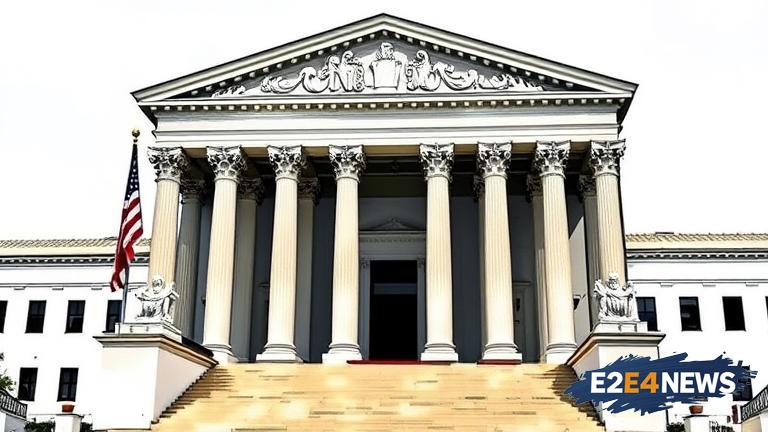The Supreme Court has made a significant ruling, allowing Trump’s efforts to close the Education Department to proceed. This decision has sparked widespread controversy and debate over the future of education in the United States. The Education Department, established in 1979, has been a cornerstone of the US education system, providing funding, guidance, and support to schools and students across the country. Trump’s efforts to close the department have been met with fierce resistance from educators, lawmakers, and advocacy groups, who argue that it would have devastating consequences for the nation’s education system. The Supreme Court’s ruling has been seen as a major setback for these groups, who had hoped that the court would block Trump’s efforts and protect the Education Department. The ruling has also raised concerns about the potential impact on students, teachers, and schools, who rely on the department for funding and support. The Education Department has been responsible for implementing and enforcing key education laws, such as the Individuals with Disabilities Education Act and the Every Student Succeeds Act. Without the department, it is unclear who would take on these responsibilities and how they would be funded. The ruling has also sparked concerns about the potential for politicization of education, with some arguing that Trump’s efforts to close the department are motivated by a desire to undermine the education system and promote a partisan agenda. Despite the ruling, opponents of Trump’s efforts have vowed to continue fighting to protect the Education Department and the nation’s education system. They argue that the department is essential for ensuring that all students have access to a high-quality education, regardless of their background or circumstances. The ruling has also highlighted the deep divisions within the US over education policy, with some arguing that the Education Department is unnecessary and others arguing that it is essential. As the debate over the future of the Education Department continues, it is clear that the Supreme Court’s ruling will have significant implications for the nation’s education system. The ruling has also raised questions about the role of the Supreme Court in shaping education policy, with some arguing that the court has overstepped its bounds and others arguing that it has made a necessary decision to protect the Constitution. Ultimately, the fate of the Education Department remains uncertain, and it is unclear what the future holds for the nation’s education system. The Supreme Court’s ruling has added fuel to the fire, and it is likely that the debate over the Education Department will continue for months to come. The ruling has also sparked concerns about the potential impact on the nation’s economy, with some arguing that a weakened education system could have long-term consequences for the country’s competitiveness and prosperity. As the nation waits to see what happens next, one thing is clear: the Supreme Court’s ruling has significant implications for the future of education in the US.
